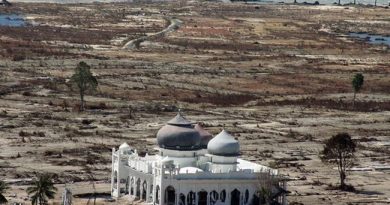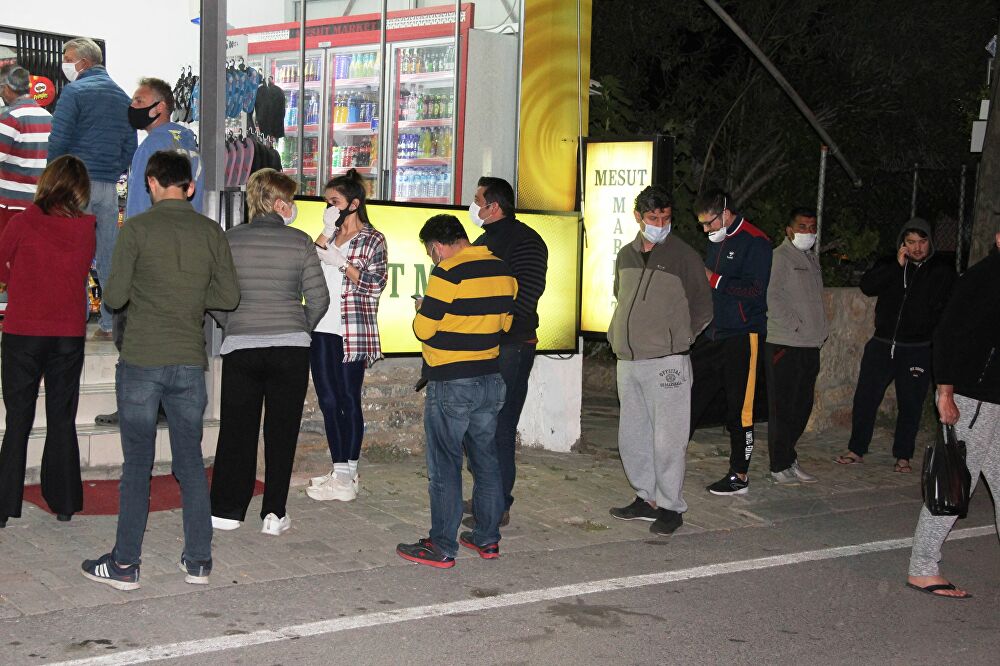Productive Farming to be Exercised in Southeastern Turkey in 2013
State Minister Cevdet Yılmaz has said land equal to an area seven times larger than the island of Cyprus will be irrigated in what he calls highly productive farming in southeastern Turkey when a project long neglected in the past is completed in 2013.
In an interview with Today’s Zaman, Yılmaz noted that farmers will be able to harvest five crops every two years in a large area of land thanks to the Southeastern Anatolia Project (GAP). First initiated in 1977, GAP was intended to resolve agricultural and economic challenges in the Southeast but eventually became mired in neglect and financial difficulties. In its second term in office, after the 2007 general elections, the Justice and Development Party (AK Party) government allocated nearly TL 9 billion to the GAP project over three years for investments in the region as part of an action plan scheduled for completion by 2012. Since 1997 a total of TL 33.6 billion has been spent on the project.
Among the fundamental priorities of the GAP project are creating new job opportunities to maintain economic growth, intensifying the region’s economic relations with bordering countries, upgrading the production efficiency and competitive power of enterprises and enabling a rise in employment in line with the region’s economy by increasing the investment and production attractiveness of the region. When the project is completed, it is also expected to deal a huge blow to terrorist Kurdistan Workers’ Party’s (PKK) activities in the region as it will substantially help locals become more prosperous, bridging the income disparity between the Southeast and other regions in Turkey.
Currently, 29 percent of the arable land in the GAP region, which covers nine provinces in the Southeast, can benefit from water resources utilizing irrigation channels and dams, compared to just 12 percent in 2002. The government estimates Turkey will earn $2.1 billion in agricultural revenue annually once GAP is completed.
It also says Turkey can easily export $112 billion in agricultural products — currently amounting to $12 billion. As part of the action plan, the total length of the main irrigation canal will be 1,649 kilometers, and it will be completed next year, Yılmaz told Today’s Zaman. “The entire Southeast has been turned into a huge construction site,” he said.
GAP is also an energy project as the 10 hydropower plants built so far as part of GAP supply most of the electricity produced by hydropower plants across Turkey. Underlining that GAP is a unique development project, Yılmaz added: “Now one in each four light bulbs people use in Turkey is now being illuminated thanks to GAP. We have completed 74 percent of all planned energy investments as part of the project. Since they were first put in operation, those 10 hydropower plants had produced 337.7 billion kilowatt hours (kWh) of electricity by the end of last year. This energy is valued at $20.3 billion.” Seventeen percent of all related irrigation projects planned as part of GAP have been completed. “This rate will be 60 percent by the end of 2012,” Yılmaz said, adding that the remaining projects will all be completed in 2013 when GAP will be fully serving the needs of people in Turkey.
GAP’s contribution to
Turkey’s fight against unemployment
GAP is also expected, and in fact has already started, to create much-needed job opportunities in the region. Elaborating on its contributions to employment there, Yılmaz drew attention to the narrowing difference between the unemployment rate in the region and the rest of Turkey on average.
“The number of people employed there increased from 1.32 million in 2009 to 1.54 million in 2010,” he added. Last year, Turkey managed to bring the unemployment rate to 11.4 percent, down from the more worrisome levels of around 15 percent following the global financial crisis. The unemployment rate in the Southeast declined from over 17 percent to just above 12 percent in 2010, Yılmaz underlined.
If sustained, this improvement in employment is expected to be a notable contribution to Turkey’s fight against the PKK terrorism that has plagued the region for almost three decades. The PKK is known to be more influential among the unemployed as the tendency to subscribe to identity politics, which has often led to incidents of violence in Turkey, is stronger among them. The terrorist group has carried out hundreds of attacks on individuals and security forces since it started its violent campaign in 1984 and is also known to be exerting pressure on local policymakers to coerce them into opposing the implementation of the project.
19 April 2011
SOURCE: TODAYS ZAMAN





